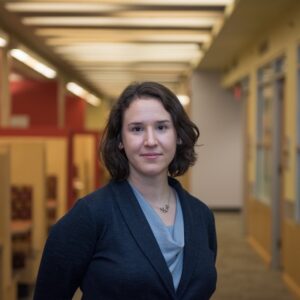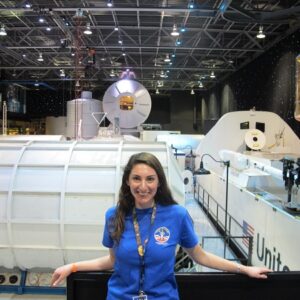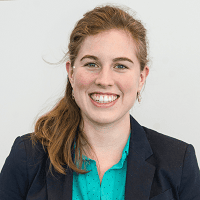The American Historical Association is pleased to announce the recipients of the J. Franklin Jameson Fellowship in American History and the Fellowship in Aerospace History.

Lindsay Van Tine
The Jameson Fellowship, sponsored jointly by the AHA and the John W. Kluge Center at the Library of Congress, is awarded annually to a recent PhD to support significant scholarly research in the library’s collections. A stipend of $5,000 funds up to three months of full-time residence at the Kluge Center. The winner of the 2017–18 fellowship is Lindsay Van Tine.
Van Tine received a PhD in English and comparative literature from Columbia University in 2016. From 2015 to 2017, she served as a Council on Library and Information Resources Postdoctoral Fellow for the University of Pennsylvania and Swarthmore College. The Jameson Fellowship will allow her to research and revise her first book manuscript, The Invention of Americana: Claiming Hemispheric History, Territory, and Archive, 1823–1854.
The Invention of Americana is an interdisciplinary study that examines the process by which the United States appropriated archival materials from the old Spanish empire in the Americas. These inherited texts, consisting of Spanish-language land claims, notaries, and transcriptions, were co-opted to assert US hemispheric dominance during the age of the Monroe Doctrine and the Gadsden Purchase. The first chapter of Van Tine’s book uses Washington Irving’s History of the Life and Voyages of Christopher Columbus (1828) as an example of how Spanish colonial documents directly inspired American nationalist literature and discovery narratives.
Van Tine plans to work extensively in the Library of Congress archives to reconstruct how the library acquired and developed its collections on Americana. She also plans to conduct preliminary research on a future project that will analyze indigenous forms of inscription from a hemispheric perspective.

Emily Margolis
The Fellowship in Aerospace History is supported by the National Aeronautics and Space Administration (NASA) and awards a stipend of $21,500 to fund advanced research in aerospace history. The winner of the 2017–18 fellowship is Emily Margolis, a PhD student in the history of science and technology at Johns Hopkins University.
Margolis, inspired by childhood travels, is interested in the historical significance of “space tourism.” During the Cold War, thousands of American families flocked to museums, landmarks, and other attractions bearing the theme of space exploration. Margolis argues that space tourism was a means of reinforcing Cold War–era citizenship, as ordinary Americans sought to become more literate of and engaged with the “next frontier.” She also examines the economic impact of spaceflight, not in relation to new developments in engineering and technology, but in the context of job creation and investment in the hospitality industry.
Margolis began her fellowship term in July and will use the time to support completion of her dissertation, “Space Travel at 1G: Space Tourism in Cold War America.” The dissertation focuses on five case studies of space tourism, highlighting sites as varied as the Marshall Space Flight Center in Alabama and the Tomorrowland area of California’s Disneyland. She plans to visit archival collections at the Kennedy Space Center, the Johnson Space Center, and other organizations.
Congratulations to Van Tine and Margolis for their successful proposals.
This work is licensed under a Creative Commons Attribution-NonCommercial-NoDerivatives 4.0 International License. Attribution must provide author name, article title, Perspectives on History, date of publication, and a link to this page. This license applies only to the article, not to text or images used here by permission.



